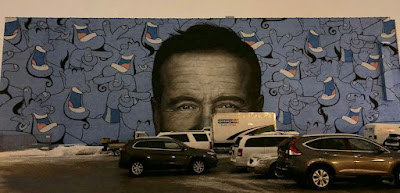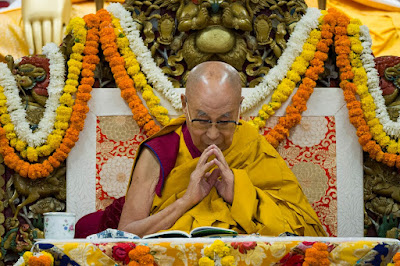The Enduring Legacy of Robin Williams: Joy, Laughter, and Compassion
The Unforgettable Robin Williams
Robin Williams was beyond a comedian and actor; he was a tour de force, an entertainer that spanned generations and genres. Robin Williams managed to leave such an indelible legacy in the entertainment industry through his inexhaustible energy, smart humor, and ability to relate with audiences regardless of their age. In this article, we will take you through the life and career of this multi-talented artist delving on his early life, rise to fame and iconic movies which showcased his immense talent and lasting impact.
Early Career and Rise to Fame: From “Mork and Mindy” to Hollywood Stardom
Robin Williams burst unto the comedy scene in the 1970s with his iconic Mork character on the hit show Mork & Mindy. This role wasn’t just his introduction to a larger audience, but it also highlighted his unique comedic style- one that relied heavily on fast-paced improvisation until laughter resulted.
However, even comedy on television could not limit Robin’s talent as he transitioned into stand-up comedy where he continued to astound people with his sharp wit. Through live performances, Robin became a master of timing when it came to comedy while at the same time showcasing how versatile he was when given a wide range of topics.
But when it comes to movies, Robin Williams made a real name for himself. For example, early works in film like Popeye or Good Morning Vietnam showed that he had something much more than just being funny. They were stepping stones in a long journey of film making for him which eventually led him into some of these most memorable roles.
Iconic Film Roles: A Showcase of Versatility and Depth
“Dead Poets Society” (1989): Robin Williams played John Keating, an inspiring English teacher who encouraged his students to carpe diem or “seize the day”. Audiences loved this movie because it stood out against traditional schooling; and Williams brought out the role of the charismatic Keating with all his dramatic potential.
“Mrs. Doubtfire” (1993): In this movie, Williams played a nanny by name Euphegenia Doubtfire who was funny yet had a lot of heart. What differentiates this character from others portrayed by other actors is that he was a father and also an old woman whom he played concurrently in this film.
“Aladdin” (1992): Williams worked as the Genie in Aladdin, an animated Disney classic. Through his rapid-fire impressions, musical numbers, and well-timed jokes, Williams breathed life into the Genie making him one of the most unforgettable characters ever created.
“Good Will Hunting” (1997): This drama won several Academy Awards including Best Supporting Actor for Robin Williams who played Dr. Sean Maguire — a therapist who assists troubled genius Matt Damon. For his portrayal of a compassionate therapist in Good Will Hunting, Williams won an Oscar which highlighted his ability to excel both in comedy and tragic roles.
“Jumanji” (1995): Alan Parrish, portrayed by Robin Williams, was the main character in this family action-adventure motion picture. This movie became iconic because it blended some critical element like comedy into its plot thereby making it enjoyable even to adults.
“The Birdcage” (1996): This comedy featured Robin William and Nathan Lane as two gay men trying to impress their soon-to-be-conservative parents-in-law. What made Armand Goldman’s performance different from other roles that he has played was his readiness to take on bold unconventional characters.
Inspired by a true story, “Patch Adams” (1998) featured Robin Williams as a doctor who used comedy and kindness to help his patients. The film demonstrated how well he could combine humor and sincere emotions in equal measure.
In “Bicentennial Man” (1999), Williams played Andrew Martin, a robot who wanted to be human. This was an intellectually engaging movie that revolved around issues like identity and humanity; it also marked another great moment of dramatic performance for Williams.
“One Hour Photo” (2002) had a different role for Williams compared to many of his comedic ones. In this thriller, he acted as a deranged photo laboratory technician. This scary acting indicated that he could play difficult characters who were troubled.
In “Night at the Museum” (2006), Williams brought some laughs and seriousness into the film targeted at kids. He played the role of the historical personality Roosevelt adding depth to the film set in a fantasy world.
Robin Williams is still revered as one of the greatest entertainers ever due to his brilliance, energy surplus and unending dedication to fun making, reasoning and sharing emotions with people. His comic skills were so flexible that he would move from comedy to drama without any problem, making him an icon adored by many audiences as well as getting personal with them. The following sections of this paper will consider Robin William’s impact on charity work as well as comedy community and mental health awareness globally.
Television and Later Career: The Return of Robin Williams
Robin Williams returned to television through “The Crazy Ones” in 2013 after successful stints in films business. This showed how much flexibility there was in his career as an entertainer. He starred alongside Sarah Michelle Gellar in this series as Simon Roberts, a weird advertising executive. Although “The Crazy Ones” had a short life span, it successfully demonstrated how good Willams still was at doing comedy despite the fact that there were new challenges in his life.
Robin Williams remained versatile, taking on various roles both in movies and on stage during his later years. For instance, he played Dwight D. Eisenhower in “Lee Daniels’ The Butler” and Teddy Roosevelt in “Night at the Museum” series. This aspect of his career showed how he possessed an extensive range of talent as an artist, ready to try out different things.
Personal Connection to Roles: Infusing Warmth and Humor
Robin William’s career was phenomenal in that he injected his own sense of warmth, humor and genuine human beings into the characters he portrayed. The best illustration of this is probably his role as Dr Hunter “Patch” Adams in the 1998 movie Patch Adams. In real life, Patch Adams was a doctor who believed in the power of laughter and human interaction as a healing process. Williams shared Adam’s love for bringing happiness to others by displaying sincerity and compassion through his acting. The role played by him captured exactly what Patch Adam had set out to do hence having a lasting impact on the viewers and showing how much at home Robin was with all these characters.
Charity Work and Philanthropy: Robin Williams’s Heartfelt Commitment
Apart from entertainment, Robin Williams was involved in many charitable activities that benefited many individuals and communities. He dedicated himself to numerous philanthropic projects thereby influencing the world positively beyond the cinema industry.
His involvement with St Jude Children’s Research Hospital, Christopher Reeve Foundation, as well as supporting USO tours just showed his commitment to healthcare spinal cord injury research along with military personnel wellbeing. His support wasn’t without conviction; it just revealed how deeply sympathetic he was towards others’ sufferings and willingness to play an active part in ameliorating them.
His Windfall Foundation was yet another way of demonstrating his concern for others. The organization supported issues like education, health care among other things. By doing this, though his Windfall Foundation, Williams transformed his popularity into concrete steps addressing critical social concerns.
Articles have widely written about Robin William’s charities revealing how committed this actor was about helping humanity. Such articles show the effects he had on various charity works which were not limited only to film industries.
Robin Williams Legacy of Laughter Award: Honoring Humor and Compassion
The Legacy of laughter award was instituted in recognition of Robin William’s enduring legacy. This prominent award is given to individuals who have excelled in comedy, while using their prominence to do some philanthropy as well. It appreciates not only the principles of fun but also recognizes significance of community support.
Recipients of Legacy of Laughter award include people like Robin Williams who have used laughter to change the world positively. It is based on a blend of funny excellence, philanthropic activities and helping fellow men with humor.
Impact and Legacy: A Multigenerational Icon
What made him an icon both in film industry and as a philanthropist was the fact that he impacted lives across many generations. Through his timeless humor and relatable characters, he created a platform where parents could laugh together with their children thereby bridging generational gaps.
His legacy extended beyond showbiz. Many were inspired by his charitable acts as well as advocacy works. Instead of using fame and wealth for self-gain, he spent most part of his life championing for what he believed in and impacting lives.
Robin Williams is not just a comedian and an actor, but a sign of joy, humor, and pity. His career in television, cinema and stand-up comedy was versatile and exposed talents and skills that could not be matched by anyone else. Indelible marks on hearts were left through his movies while bringing warmth and smiles into the lives of viewers through his characters.
Outside the stage or screen also, William’s philanthropy and other charity works showed his undying commitment in making the world better. He touched lives beyond his industry leaving behind a legacy of kindness, benevolence and genuine concern for humanity.
The Legacy of Laughter Award was established to perpetuate the spirit of people who use humor as inspiration for change.
A forever beloved icon, an eternally laughing source plus soft-spoken champion for marginalized persons are Robin William’s traits never to be forgotten. Above all lasting heritage he is noted for would remind us that with humor, generosity as well as heartfelt relationships to others individually we could turn the world a better place than it is today. Dr. Ian Weisberg








Comments
Post a Comment